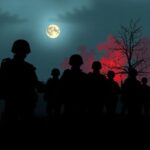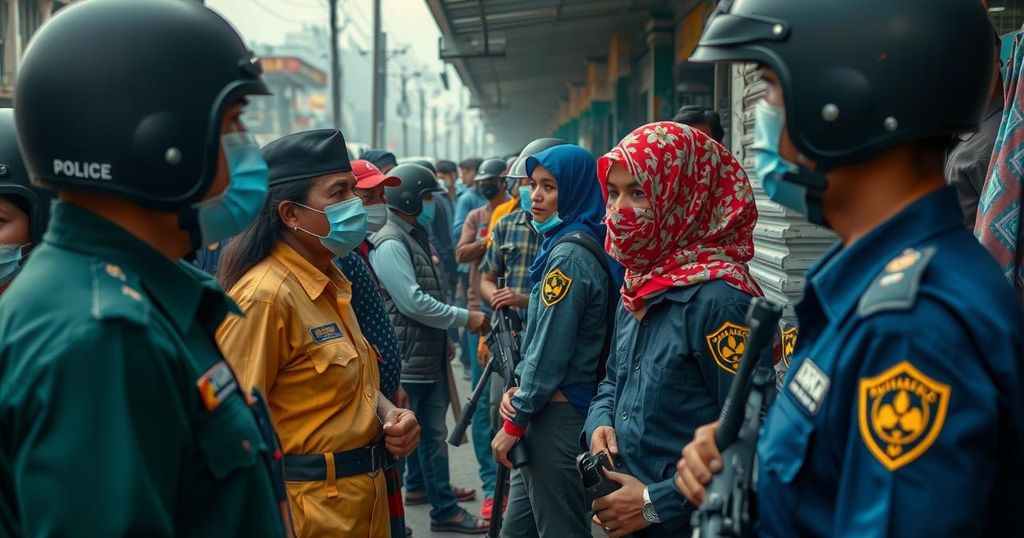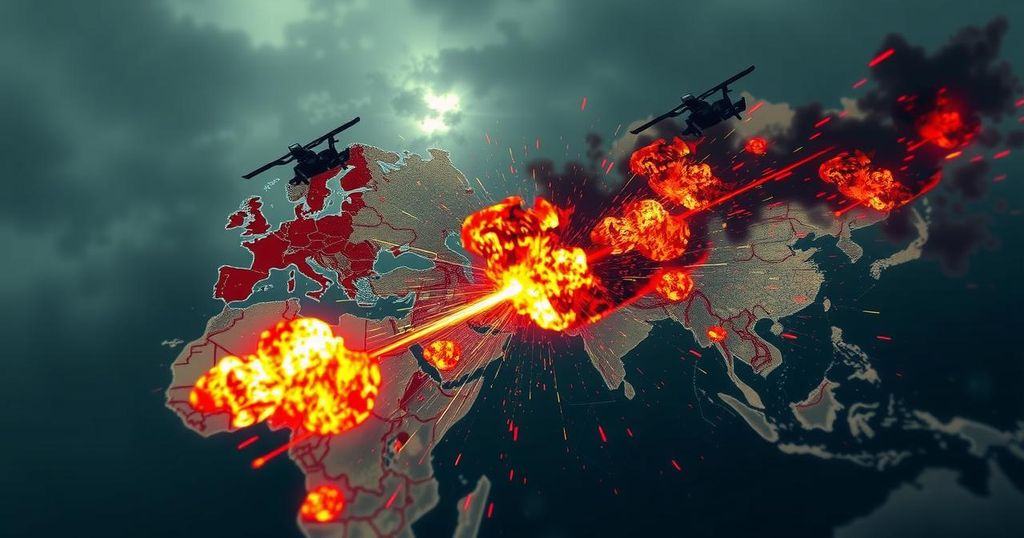Humanitarian Crisis in Ethiopia’s Amhara Region: The Tragic Death of Asbera Mohamednur and Its Implications
The Ethiopian military’s attacks in the Amhara region have led to significant civilian casualties, exemplified by the recent brutal killing of a woman, Asbera Mohamednur, in front of her young child. Eyewitnesses report a series of military assaults that indicate a troubling pattern of violence targeting the Amhara ethnic group. Despite evidence of grave human rights abuses, international responses have been muted, prompting calls for justice and intervention.
The conflict in the Amhara region of Ethiopia has resulted in the tragic death of a woman named Asbera Mohamednur, who was shot in a brutal military attack. Eyewitnesses from Soten Kebele described witnessing her slain body, which bore visible injuries, as her two-year-old child remained near her, evoking intense distress at the horrors of the incident. This assault aligns with a pattern of violence disproportionately affecting the Amhara ethnic group, as other witnesses disclosed a series of military operations that included drone strikes on civilians in various towns, leading to significant casualties. The violence intensified in August 2023, following clashes between federal forces and the Fano militia, which seeks to defend the Amhara people’s interests. This group has cited widespread accusations of massacres, systemic discrimination, and mass arrests against the Amhara, particularly following the federal police’s sweeping detentions of those from this group in the capital, Addis Ababa. Recent military actions have also contributed to growing reports of drone strikes aimed at civilian areas, resulting in grave injuries and fatalities, including among vulnerable groups such as children and teachers. The Ethiopian Human Rights Commission has characterized the ongoing conflict as resulting in severe human rights violations, with reports of extrajudicial killings, forced relocations, and disruptions to essential services such as internet access and the movement of goods. Moreover, documented incidents of violence against minority populations, particularly Christians, have exacerbated ethnic and religious tensions. International responses have been critically lacking, as local advocates and victims call for intervention from global human rights organizations, lamenting that evidence of atrocities continues to be overlooked. Amidst calls for accountability, an anonymous observer stated the urgent need for justice, emphasizing, “The world cannot stand by while innocent people are massacred for their ethnicity. Sanctions and international pressure must be applied to stop the violence and protect the Amhara people.” The impact of these events is encapsulated in the heart-wrenching image of a child left to grieve beside their deceased mother, underscoring the moral imperative for immediate global action.
The ongoing turmoil in Ethiopia’s Amhara region stems from a complex interplay of ethnic tensions, military operations, and political conflict. The Fano militia has emerged as a prominent actor claiming to protect the rights of the Amhara people, highlighting grievances that date back years, including systematic violence, discrimination, and government oppression. The situation has been exacerbated by military responses to uprisings, leading to severe humanitarian crises characterized by loss of life, property destruction, and mass detentions. The lack of international reaction to these developments has further fueled the conflict and the suffering of the Amhara population.
The situation in Ethiopia’s Amhara region remains dire, with ongoing military violence resulting in civilian casualties and human rights violations. Eyewitness accounts of the brutal killing of Asbera Mohamednur bring to light the urgent need for accountability and justice. International actors are called upon to take meaningful action to address these atrocities and support the rights of the Amhara people. The continued silence of the international community risks condoning the violence perpetuated against ethnic groups, further deepening divisions and suffering.
Original Source: www.dailynewsegypt.com







Post Comment